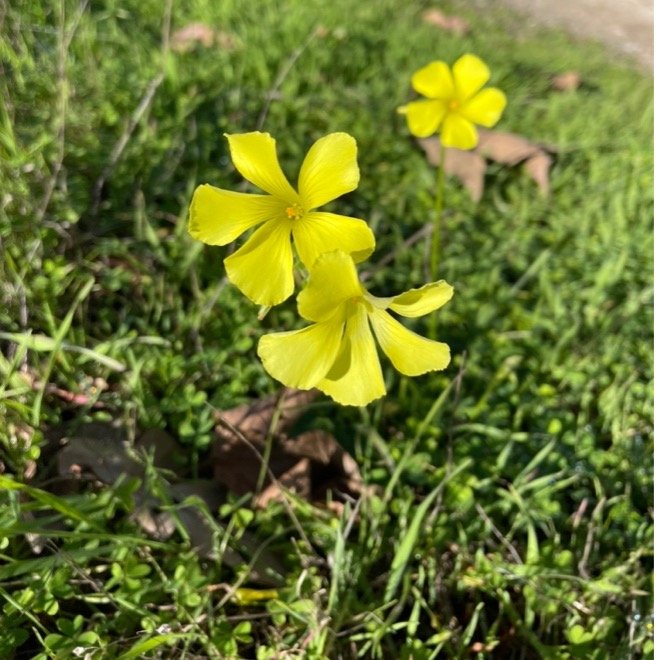Covid Road Trip
We were packed and ready to go on a 3-month adventure in Israel. My checked luggage included three Global kitchen knives and two slim-profile, Epicurean cutting boards. I imagined the apartment we’d rented in Tel Aviv, one block from the Mediterranean, as a gathering place for new friends to mingle and share ideas. After daily shopping at the large, outdoor market, Shuk HaCarmel, where fresh fruit, fish and spices abound, I’d cook and write every day.
Photo by Agnieszka Kowalczyk on Unsplash
But then, in early December, days before our departure, Israel went into lockdown. With the Omicron Variant raging despite high vaccination rates, only citizens returning from abroad were admitted. An appeals process for exemptions was offered. As the spouse of a citizen, traveling with him, it seemed that I’d qualify. Copies of our marriage license, passports, and travel dates were hastily scanned and sent. We went to sleep with confidence; woke up to an email declining entry. “Surely this was a mistake,” we pleaded with the Israeli embassy in San Francisco. “I meet all of your criteria!”
“Where are you getting this admission information?!” the embassy staffer demanded gruffly.
“From your website,” I replied.
“Well, it’s wrong. You cannot come.”
Months of planning, and thousands of dollars, up in smoke. But our loss was greater than money. Our flights began and ended with stops in Germany, where our son and his family now live. There would be no cuddling with our granddaughters, no sleepovers with the girls we miss so much. Covid and its variants made all our plans come crashing down.
We walked around like zombies for two days, the news too much to bear. We needed something to distract us, to soothe us, to feed our aching souls. Why not take a road trip within the United States? No airline tickets or non-refundable accommodations involved.
We decided to let the holidays pass, and leave on January 6th, drive down the Oregon and California coasts, then head east towards Arizona to explore the southern part of that state. Shlomo’s car has a rooftop tent with a queen-sized mattress for “overlanding.” I call it The Dog House. He drives to remote trailheads, camps, and wakes up early to trail run or mountain bike. No way I was sleeping in that thing. Especially not in January. “How about this,” I suggested. “We sleep in hotels, and I’ll cook as many meals as possible at campsites and picnic benches.” We had a deal.
The tent we DIDN’T sleep in. Photo credit: Mindy Stern
Pulling out maps of Washington, Oregon, California, and Arizona, we started planning. With the whole month ahead of us, our only constraint was a return date of January 31st. That gave us twenty-four full days for travel, plus one for wiggle room. I called friends in Phoenix and Tucson to say we were heading in their direction. Then we hit the road. For maximum flexibility, we made only one hotel reservation for our first night on the Oregon coast.
Rain pounded on the car roof, and dismal grey skies made the drive down I-5 feel cold and gloomy. An audiobook kept us company. When We Cease to Understand the World, by Benjamín Labatut. It describes black holes, quantum physics, and the tormented men who devoted their lives to studying these fields. Um, no. Tormented geniuses were not the company I was seeking.
I longed for a hot bowl of soup, and some audio to distract us completely. We stopped in Portland for lunch. Determined not to eat indoors while Omicron was spreading, but stymied by the relentless rain, we ate the first of many meals in the car and started listening to a new book, The Love Songs of W.E.B. Du Bois. Honorée Fanonne Jeffers’ 800-page novel provided excellent company. After brief rests, we eagerly jumped back in the car to pick up the story where it left off. All through Oregon, California, and Arizona, over thirty hours, this book kept us rapt. We followed a fictional family through their Native American and African roots, meeting free and enslaved Blacks, and the white settlers who took ownership of their land and bodies. Thoroughly absorbing. A perfect companion for this trip.
Photo credit: Mindy Stern
Our car was loaded to the brim, and I was nervous about having so much visible stuff, something that became a problem much later in the trip. In addition to each of our duffel bags, we had boots, shoes, hiking poles, jackets to suit the changing weather, a plug-in refrigerator, containers with cooking utensils, non-perishable foods, a double-burner camping stove, and a propane tank. But until the rain let up, I didn’t see how I was going to use any of the cooking gear.
The next stop was in Orick, Northern California, at Prairie Creek Redwoods State Park. The sun was rising just as we reached the James Irvine trailhead, and though the trail was damp from the previous week’s rain, this morning, it was dry. As the cold ground warmed up, mist rose, adding to the magical feeling. Walking through the forest under the majestic Redwoods was a spiritual experience. My soul was getting the nourishment it needs.
Photo credit: Shlomo Freiman
While I walked, Shlomo trail-ran and we devised a plan so each of us could enjoy the outdoors at a skill level and pace that suited our different needs: The All-Trails app helped us find moderate hikes I could easily navigate alone, without water-crossings or extreme elevation gain or loss, while Shlomo ran the trail. Before parting, we agreed on a time when each of us would turn around. If all went to plan, we’d meet at the car or the trailhead within a few minutes of each other. It worked like a charm!
Photo credit: Shlomo Freiman
At lunchtime, it was cold but sunny. We broke out the camping stove and I whipped up a meal – pan-seared chicken breasts and cherry tomatoes with herbs, smoked corn salad, and tabouleh. Washed down with a small glass of chilled Sauvignon Blanc, the food and wine warmed us up.
From the Redwoods we continued down the coast to Eureka and spent the night in Fortuna. There was evidence of the recent wildfires along many of the routes we drove – whole swaths of mountain sides burnt to a crisp. Waiting on line to check into our hotel, the woman ahead of me asked the clerk if they kept track of how often she used the laundry. They did not. Dejected, she turned to leave. Our eyes met. “Excuse me,” I blurted out, “do you mind my asking why you need to know about the laundry?” Without a trace of emotion, she said, “I lost my house in the wildfire; everything’s gone. Been living in this hotel for three months. Got to report all my expenses to FEMA.”
Yikes. I was on vacation, fretting about an overstuffed car. She’d lost all of her possessions. For her and dozens of others, this hotel was home, with no end in sight. “I’m so sorry,” I muttered. “I hope you get out of here soon.”
With heightened awareness of the fires and their aftermath, we now noticed the ashy evidence along many of the routes we drove. But Fortuna was the only place where we met the demoralized survivors of the fires. The magnitude of their losses put ours in perspective. Yes, our grandkids were far away, no, we couldn’t see them in person, but they were not in any danger. To feel connected to them, I searched for postcards with animals or pretty scenes that might appeal to a six- and three-year-old. In the evenings or quiet times, I wrote to them, describing things they’d like on our trip and how much we love them, then popped the cards in the mail every few days.
An evening in San Francisco with friends and their three young children lifted our spirits. The laughter, the playfulness – it made us feel alive. Our Zombie selves were morphing back into humans.
Curious about our road trip, our friends asked “where to next?” We didn’t have a firm plan, and they suggested Big Sur. We’d never been and were eager to check out the famous, funky town that hugs the coast. Things have always been slow there in January, but Covid forced many businesses to close. Empty shops everywhere reminded us we were traveling in the middle of a pandemic. There were no open restaurants, but we had plenty of our own food. The question was how to cook on a dark, windy night. Shhhh. Don’t tell anyone: we made Korean Hot Pot in our room – fast and yummy!
Photo credit: Shlomo Freiman
Rising early the next morning to hike, we were treated to gorgeous views of cliffs, coastline, and California poppies dotting the meadows. Shlomo also spotted a yellow flower he recognized from the coast of Israel. Its Hebrew name translates approximately as “sour-ette.” When I sucked on the stem, I could see why – it tasted just like lemons!
Little Sourette. Photo credit: Mindy Stern
Montana de Oro near San Luis Obispo. Photo credit: Mindy Stern
After Big Sur and three more nights in California, we reached our ultimate destination - Arizona. Aside from visits with friends in Phoenix and Tucson, the Chiricahua National Reserve was the hands-down highlight of our outdoor exploration. Nestled in the southwestern corner of the State, it features jaw-dropping rock formations, perched one on top of the other in a way that defies gravity. We were practically the only visitors exploring acres and acres of these monumental spires, adding to the sense of wonder.
Chiricahua National Monument. Photo credit: Mindy Stern
Two weeks after leaving home, we reached Bisbee, the former copper-mining town just a few miles from the Mexican border, and our southernmost point. We lingered in the region for a few days, and then it was time to start heading home on a different route.
Lavender Mine, Bisbee Photo credit: Mindy Stern
Our final hike was by Lake Shasta. Returning to the car exhilarated, we unpacked the stove one last time and cooked a hot lunch. Packing everything back into the car after our meal, I couldn’t find the purse that holds my extra glasses, pens, pencils, and a few other items. We looked everywhere. There was no sign of a break-in, but my bag was definitely gone. As we scratched our heads in wonder, an email alert informed us that the car alarm had gone off while we were hiking. Yikes – someone really got into our car! Shlomo’s spidey-sense guided him to the dumpster a few feet away. And there, right on top, was my bag, untouched, still zipped, nothing missing. Wow – that was a close call. Later that night, in the dimming light, fingerprints were visible on the passenger door where the window was shimmied without leaving any signs of damage. The would-be thief never reached the laptop, tablets, or things of greater value. Disaster was averted, but it was a wake-up call about the risks of remote trailhead parking with a loaded car.
Our pandemic road trip ended with a joyful reunion with friends in Winthrop, an outdoor lover's paradise in Eastern Washington. Over 3 ½ weeks, we saw beautiful places, met beloved friends, listened to good books, and enjoyed each other’s company. Our road trip was distracting, soothing, and soul-satisfying. And it put our minor troubles in perspective – just what we needed. When Covid wanes and international travel opens up, we’ll visit our kids. And now, we’re ready to plan our next road trip adventure.













